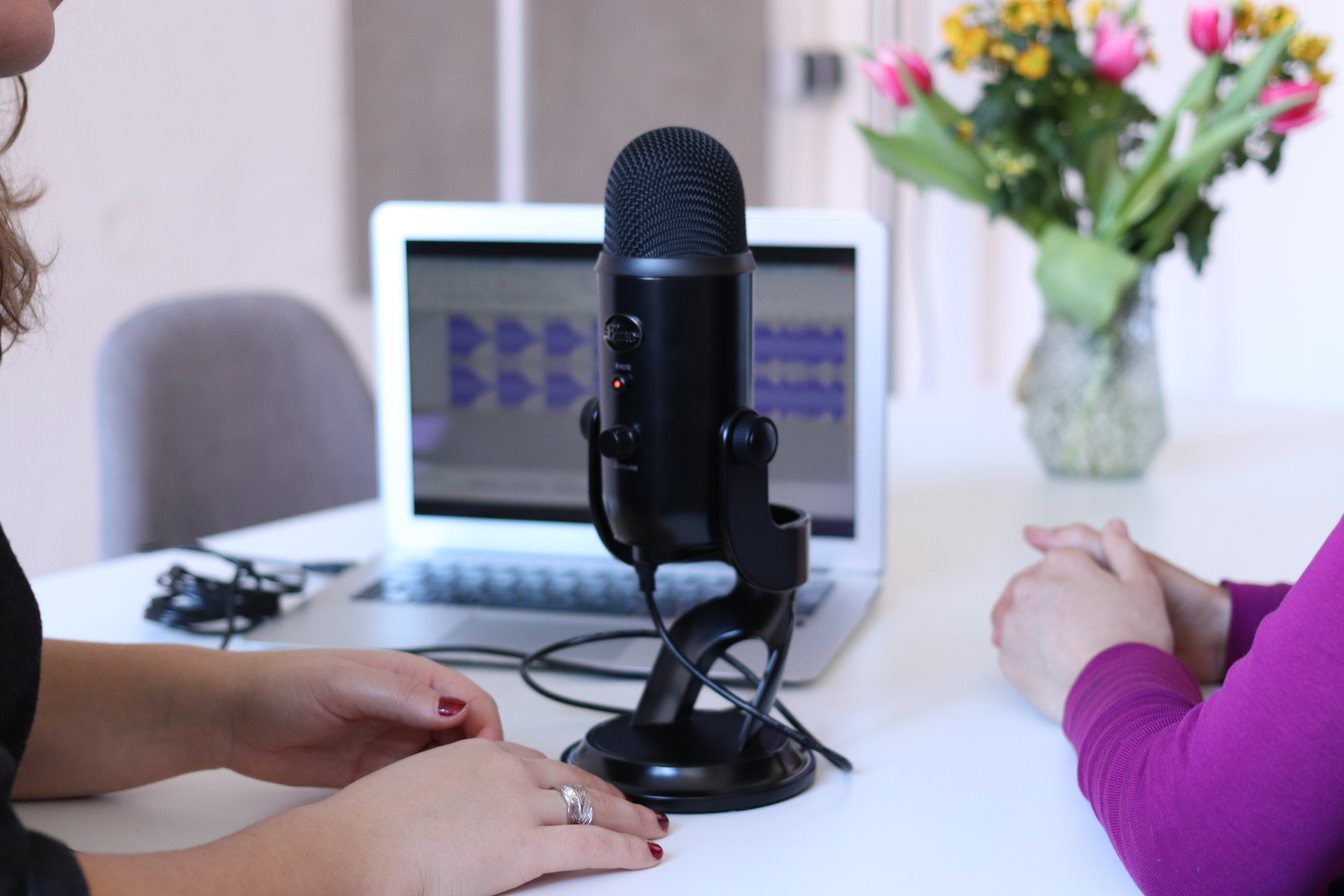In summary
- A growing number of Swinburne academics are adding ‘podcast executive producer’ to their job title
- Associate Professor Narelle Lemon co-creates her podcast with her students and has witnessed their critical thinking and digital literacies soar as a result
- Podcasts create student-centred learning experiences and have helped students feel connected through lockdown
Swinburne academics are adding ‘podcast executive producer’ to their job titles. With weekly listening of podcasts up 17 per cent from 2020 to 2021 and 37% of Australians aged over 12 listening to podcasts every month, according to the latest Infinite Dial 2021 report conducted by Edison Research, using podcasts as a next-generation educational tool is a smart play.
Creating student-centred learning experiences
Educational institutions steeped in tradition may shudder at the thought of tapping into popular culture and allowing their students to take the creative lead. But progressive Swinburne academics, like Associate Dean Education from the School of Social Sciences, Media, Film and Education at Swinburne, Associate Professor Narelle Lemon, are only too happy to invite students to co-design and co-create podcasts with them. She’s one of a growing community of podcasters from various disciplines at Swinburne.
Plugging in to thrive in a digital world
Associate Professor Lemon executive produces the podcast Teachers Supporting Teachers. Created as a support resource for final year education students and early career teachers, Swinburne teaching students don’t just listen to the show – they co-create it. Associate Professor Lemon has witnessed a sharp increase in confidence and digital literacies in her students.

Associate Professor Narelle Lemon (top, centre) with students recording Series 2, Episode 7 of Teachers Supporting Teachers. Pictured from left to right: Ashley Toth, Associate Professor Lemon, Kayla Fioritti, Lauren Hevey, Manami Menich, Natasha Rahilly and Nina Mosso.
‘At every stage of creation, the students are thinking critically – about the idea, the planning, creating, editing, producing, the different perspectives to consider, and how to put it out into the world,’ says Associate Professor Lemon. ‘Witnessing the excitement, seeing their digital literacies develop – it’s such a beautiful thing to watch and be a part of.’
On-demand learning (and listening)
Associate Professor Lemon says that podcasts empower students to engage with the content when they’re ready. And that doesn’t just mean being caffeinated – it means being physically, mentally, cognitively and emotionally ready.
‘Students can press play, pause, come back to the content, and share,’ says Associate Professor Lemon. ‘There is a shared listening experience that occurs over time and across boundaries allowing for ongoing links to be made.’
.jpg/_jcr_content/renditions/cq5dam.web.3840.2160.jpeg)
Podcasts allow students to engage with the content on their terms. They are a flexible learning tool that allows for ongoing links to be made. Photo by Melanie Pongratz on Unsplash
Swinburne Bachelor of Education (Primary) student Funan Keath listened to teaching podcasts, including Professor Lemon’s Teachers Supporting Teachers, on her 45-minute commute to her professional placement in late 2020, which occurred just as students were returning to school after six months of remote learning.

Swinburne Bachelor of Education (Primary) student Funan on her teaching placement in Pakenham. Learning with podcasts helped her cement her theory and maintain her wellbeing.
‘It was a challenging time starting my practicum on the same day students returned to school,’ says Funan. ‘I found that listening to teaching podcasts such as Teachers Supporting Teachers helped maintain my wellbeing throughout my placement.’
Together apart: how other voices help us feel connected in isolation
Students have been grateful for the podcast’s ability to create community and connection during lockdown and in a more 'normal' world, too.
‘Listening to teaching podcasts has helped me prepare for professional experiences, job applications and job interviews,’ says Funan. ‘Hearing about other teachers’ life experiences and approaches to teaching has had a positive influence on my mindset and my teaching philosophy.’
-
Media Enquiries
Related articles
-

- Technology
- Science
- Engineering
Victorian students drive green energy transition through international hydrogen competition
Swinburne’s KIOSC, in collaboration with Horizon Educational and Gippsland Tech School, co-hosted the Hydrogen Grand Prix in Melbourne.Friday 26 July 2024 -

- University
The future of fashion: Swinburne launches groundbreaking tech-focused fashion course
Swinburne University of Technology is fusing high tech and high fashion to launch a new forward-thinking Bachelor of Design (Fashion).
Thursday 25 July 2024 -

- Student News
- Film and television
Swinburne students curate "Wrestling with Reality" film season for ACMI's Cinema 3
Students from Swinburne's Cinema and Screen Studies program launch curated film season on ACMI’s streaming platform, Cinema 3.Tuesday 23 July 2024 -

- Technology
- Health
New MedTechVic prototypes to transform everyday lives of people with a disability
Swinburne’s MedTechVic has revealed three new prototypes designed through the joint Health-led Manufacturing Innovation Program, in partnership with the Australian Medtech Manufacturing Centre and Safer Care Victoria
Friday 19 July 2024 -

- University
Meet the Swinburne students and alumni at the Paris Olympics and Paralympics
Swinburne students and alumni are making their mark at the 2024 Olympic and Paralympic Games in Paris. Meet the six Swinburne athletes who are taking on the world.
Wednesday 17 July 2024


